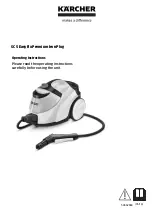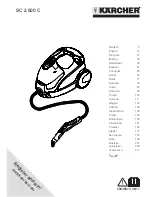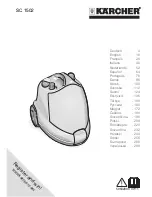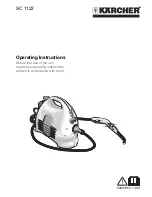
1. When picking up small amounts of liquid the Filter
may be left in place.
2. When picking up large amounts of liquid we
recommend that the Filter be removed. If the Filter
is not removed, it will become saturated and misting
may appear in the exhaust.
3. After using the Vac to pick up liquids, the Filter must
be dried to reduce the risk of possible mildew and
damage to the Filter.
4. When the liquid in the Drum reaches a predetermined
level, the Float mechanism will rise automatically
to cut off air-flow. When this happens, turn off the
Vac, unplug the Power Cord, and empty the Drum.
You will know that the Float has risen because
Vac airflow ceases and the Motor noise will become
higher in pitch, due to increased Motor Speed.
IMPORTANT:
To reduce the risk of damage to the Vac
do not run Motor with Float in raised position.
1. Remove the Powerhead Assembly. Pull Latches to
release from the Drum.
2. Lift the Powerhead Assembly up and away from the
Drum.
3. Lay Powerhead Assembly upside down on a clean area
while emptying the Drum.
4. Dump the Drum contents into the proper waste
disposal container.
5. If the Vac comes equipped with a Drain, simply
unscrew the Drain Cap and lift the opposite side
slightly to empty the Drum.
Vacuuming Liquids
Emptying the Drum (Fig. I)
9
Powerhead
Assembly
Lid
Latches
Drum
Drain
20 Gallon (75 Liters) Shown
Fig. I
WARNING:
Do not operate without filter cage and float,
as they prevent liquid from entering the impeller and
damaging the motor. For dry material pick-up,
do not operate without the filter in place to reduce the
risk of damage to the motor.
WARNING:
To reduce the risk of fire or explosion, do not vacuum
flammable or combustible liquids, gases or dust.
!
!
WARNING:
To reduce the risk of back injury or falls, do not lift a
Vac heavy with liquid or debris. Scoop or drain enough
contents out to make the Vac light enough to lift
comfortably.
!
SP7075-1 6, 9, 12, 16, 20 Gallon 2019.indb 9
2/22/19 10:31 AM










































